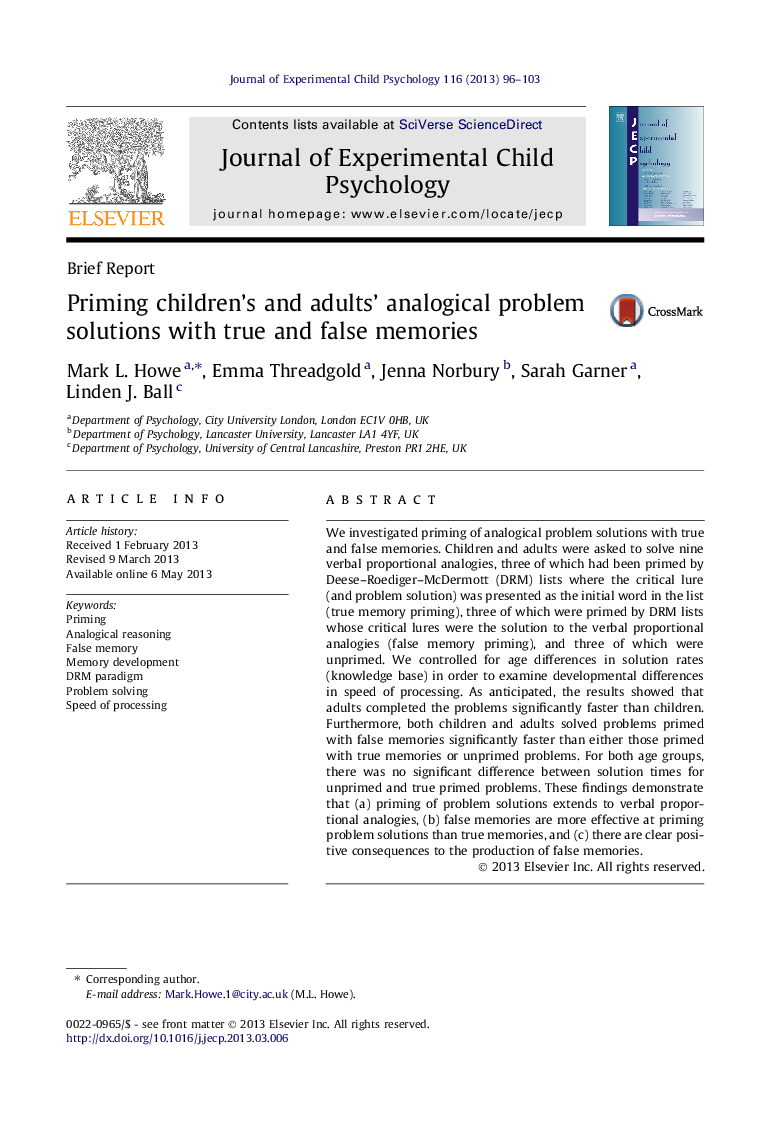| کد مقاله | کد نشریه | سال انتشار | مقاله انگلیسی | نسخه تمام متن |
|---|---|---|---|---|
| 918093 | 919449 | 2013 | 8 صفحه PDF | دانلود رایگان |

• First study to examine false memory priming effects in analogical reasoning.
• Compared the efficacy of false memory primes to that of true memory primes.
• False memories were better primes than true memories.
• Adults were better than children but priming rates did not differ with age.
• False memory priming effects are developmentally invariant for analogical reasoning.
We investigated priming of analogical problem solutions with true and false memories. Children and adults were asked to solve nine verbal proportional analogies, three of which had been primed by Deese–Roediger–McDermott (DRM) lists where the critical lure (and problem solution) was presented as the initial word in the list (true memory priming), three of which were primed by DRM lists whose critical lures were the solution to the verbal proportional analogies (false memory priming), and three of which were unprimed. We controlled for age differences in solution rates (knowledge base) in order to examine developmental differences in speed of processing. As anticipated, the results showed that adults completed the problems significantly faster than children. Furthermore, both children and adults solved problems primed with false memories significantly faster than either those primed with true memories or unprimed problems. For both age groups, there was no significant difference between solution times for unprimed and true primed problems. These findings demonstrate that (a) priming of problem solutions extends to verbal proportional analogies, (b) false memories are more effective at priming problem solutions than true memories, and (c) there are clear positive consequences to the production of false memories.
Journal: Journal of Experimental Child Psychology - Volume 116, Issue 1, September 2013, Pages 96–103